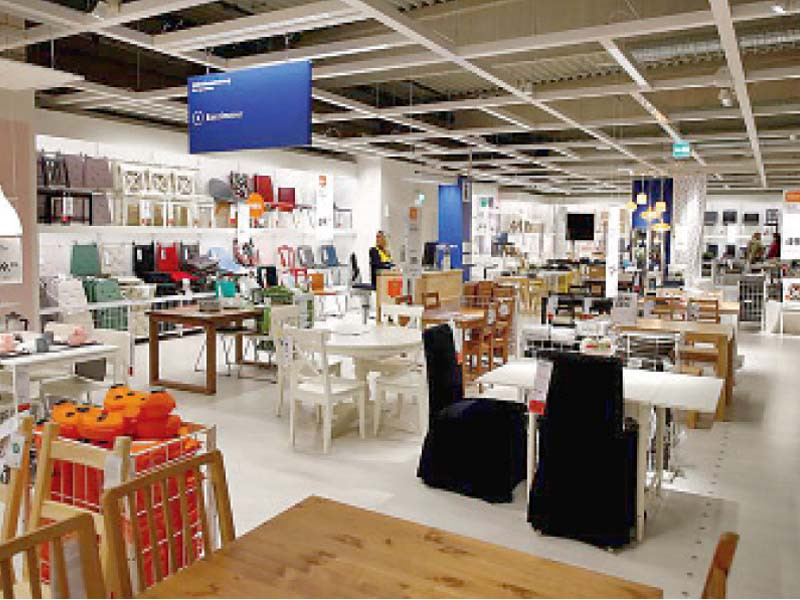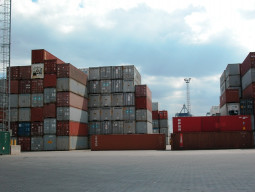
Furniture makers from Chiniot are turning towards e-commerce to enhance their sales in addition to focusing on enhancing exports to the Chinese market.
“There are two specialties of Chinioti furniture. First of all, it is made from Indian rosewood and second, it is handmade,” said Bilal Shahzada, owner of Highlight Furniture Showroom in Chiniot. “The skills and designs of our craftsmen are unique and they cannot be found anywhere else in the country.”
Chiniot is acknowledged for producing beautifully carved wooden furniture and handicrafts and a massive part of Pakistani furniture demand is met by Chinioti manufacturers.
Shahzada said that there were almost 500 furniture shops in the city along with 6,000 small and big workshops which manufactured furniture. According to him, 60% of the population of Chiniot is connected with furniture business, either directly or indirectly.
Chinioti furniture is best known for utilisation of Sheesham (Indian rosewood). According to a global analysis, completed by taking samples of 100 different types of wood, the Indian rosewood is the third best type of wood in the world.
“Indian rosewood is strong and it can adjust itself according to the weather,” said Furniture Manufacturing Association Chiniot President Haider Ali. “In winter, it swells due to humidity while in the summer season, it shrinks itself.”
If the durability of other variants of wood is 10 years, Indian rosewood can last for 100 years, he said.
However, local people are beginning to feel the pinch of inflation as the price of Indian rosewood has soared due to the imposition of additional taxes.
Earlier, the price of the wood stood at Rs2,220 per square foot, but now it has soared to Rs4,000, Ali said, adding that tax was also paid on woodcutting, wooden sheets and hardware, which could spark the downfall of this industry.
There was a time when Pakistani handmade furniture was the best in the world, but now industry practitioners are concerned about the deterioration of the segment.
“Around 300 workshops have been closed and if we do not pay attention to this industry, then it will vanish over the next four to five years,” Ali said.
Since a large number of youth has moved to other cities to seek jobs, the furniture sector faces a shortage of good carpenters and the number of workers in Chiniot is insufficient to fulfill the demand.
“They get better wages by working for a company than at Chiniot,” said Qaiser Khan, a worker at the furniture market of Chiniot.
Tariq Ali, owner of a furniture factory, called for innovation in the design of furniture as many outlets were copying the European style.
“Handmade products are linked to the culture of a country or an area and if the culture of people in that area does not reflect in their thinking and work, then the handmade products are useless.”
Pakistan used to export handmade furniture to Australia, France and many other countries in the past, but now exports of the commodity have fallen.
As the China-Pakistan Economic Corridor (CPEC) enters a new phase and China becomes Pakistan’s largest trading partner in addition to being the second largest export destination, many furniture manufacturers are eyeing the Chinese market.
“Pakistan is still exporting furniture but the quantity has fallen and the country possesses ample potential to increase it,” said Shahzada. “This can be made possible through exchange of trade delegations.”
After the completion of the motorway linking Chiniot, the precious handicraft industry had turned into a business, and eventually, a commercial furniture market was established in the city.
Currently, the furniture from Chiniot is recognised and known not only in Pakistan, but in the whole world. Businessmen of this industry are actively seeking a broader market and some of them are turning to e-commerce to find a way out.
“With the help of e-commerce, the whole world is increasing its business and exports and people of Pakistan are taking interest in it,” he said. “We will focus on this and increase our business and exchange of information through e-commerce.”
The article originally appeared on the China Economic Net
Published in The Express Tribune, November 13th, 2021.
Like Business on Facebook, follow @TribuneBiz on Twitter to stay informed and join in the conversation.
























COMMENTS (1)
Comments are moderated and generally will be posted if they are on-topic and not abusive.
For more information, please see our Comments FAQ